advertisement
Try This Sleep Doctor’s 3-Part Equation for Creating a Bedtime Routine That Actually Helps You Sleep
A sleep doctor shares his three-part equation for creating the most effective nightly routine for promoting better, more restful sleep.

Have you ever gone to bed early only to feel absolutely exhausted the next morning? Or perhaps you’re more of a night owl who enjoys staying up late to watch your favorite shows, only to find it nearly impossible to fall asleep thereafter? In either case, your nightly routine is likely to blame.
And newsflash: A bedtime routine is about more than just going to bed by a certain time—it includes a bit of prep beforehand to ensure a truly restful night’s sleep. Sure, going to sleep eight hours before you need to wake up and forgoing the rest of the prep might still help, but according to psychotherapist, functional nutritionist, and brain health author Mike Dow, PhD, cultivating a nightly routine can have big benefits for your long-term health.
To show you how to do it, we teamed up with Natrol® to ask Dr. Dow for his three-step equation for developing a nightly routine that works for you.
The importance of a nightly routine
Before you start any new routine, you want to know why it’s good for you, right? According to Dr. Dow, the benefits of a sleep-support routine include better energy, mood, immune health, healthy blood sugar levels, hormone health, and more.
But the important thing to remember about a nightly routine, Dr. Dow says, is that while many routines—like skin care, oral care, workouts, etc—can show somewhat immediate results, nightly routines are all about the long-haul.
“I think of bedtime routines like being the captain of a cruise ship versus the captain of a speedboat,” Dr. Dow says. “There are a lot of healthy routines, like, ‘Okay, I’m going to really eat well tomorrow,’ and you can do it right away. And it’s sort of like driving a speedboat—you can notice the results right away.”
He says that sleep, on the other hand, is more like a cruise ship. “You’re driving this massive ocean liner…and you actually have to be really diligent about what you’re doing every single day,” he says. “It’s not like you can all of a sudden go to bed tomorrow at 8 p.m. and wake up at 4 a.m. automatically….It is really something that you have to do over the long term if you want to get to where you’re going. So it’s like pointing that cruise ship in the right direction.”
Shop Sleep Supplements
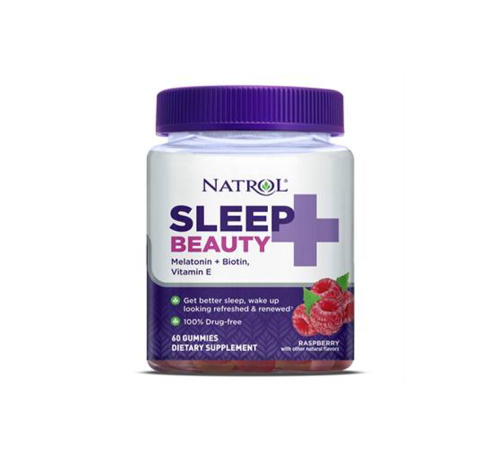
Natrol Sleep+ Beauty Gummies $20
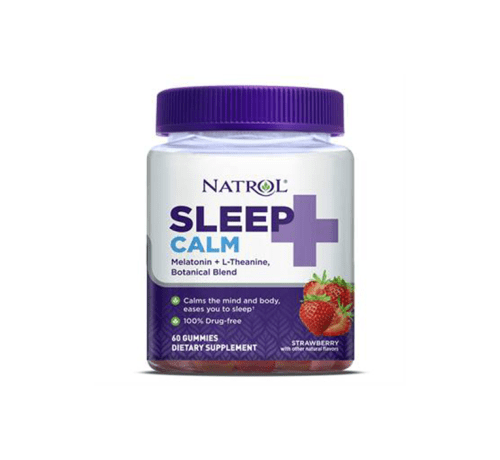
Natrol Sleep+ Calm Gummies $20
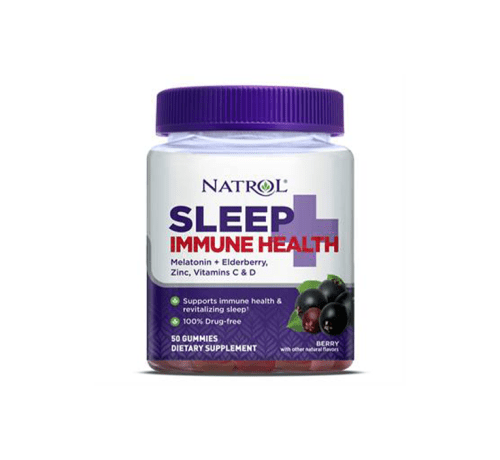
Natrol Sleep+ Immune Health Gummies $20
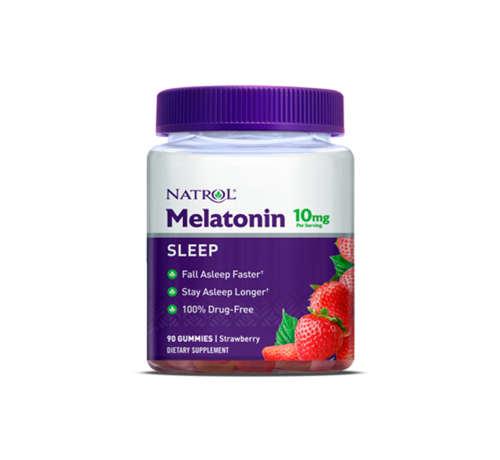
Natrol Melatonin Gummies $15
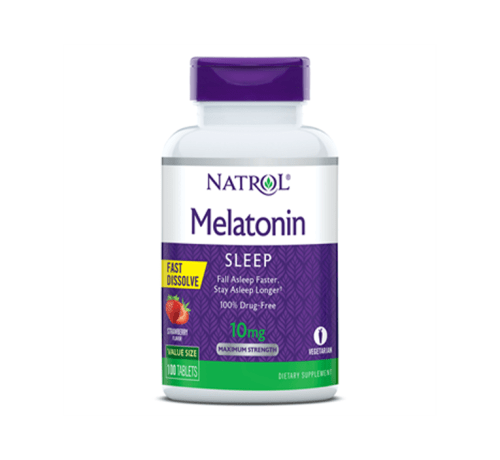
Natrol Melatonin Fast Dissolve Tablets $17
Dr. Dow’s three-part equation for creating a nightly routine
1. Three hours before bedtime: Stop eating and drinking
Once you’re ready to commit to your new nightly routine, Dr. Dow recommends following his formula that involves the first three hours before bedtime, starting with hour three.
Three hours before bed he says to stop eating and drinking (though you can still take a few sips of water if you’re thirsty). According to Dr. Dow, when you shut down your digestion cycle, you’re cueing your body that it’s time to begin winding down for sleep.
“You’ll notice that a lot of the sleepiness will come on naturally because your body, your heart, your organs, your stomach, the peristalsis—the way that the food is moving through your intestines—all of that can just sort of say, ‘Oh, it’s time to rest now’ and that can be really wonderful,” Dr. Dow says.
Since this step of your new routine can take a while to implement, Dr. Dow recommends keeping a bottle of Natrol 10mg Melatonin Gummies or Natrol Melatonin Fast Dissolve by your bed for an easy-to-take dose of melatonin to help lull your body to sleep.†
2. Two hours before bedtime: Shut down your devices
You’ve probably heard this tip before, but there’s a reason sleep experts continually recommend avoiding screens at bedtime: it really helps, but most people still don’t do it. “It’s one thing to say you’re going to stop checking your phone,” Dr. Dow says. “It is another to put your phone on airplane mode and plug it in in a different room.”
The reason to ditch your phone (and TV, sorry) at bedtime is because the stimulation from the blue light inhibits natural production of melatonin, Dr. Dow says. Additionally, it helps shut down the mind, which ultimately can help prevent overactive thoughts that can make falling asleep more difficult.
“Our screens—all the blue lights, the stress from the modern world, watching 12 hours of Netflix or cable news, and really giving ourselves a lot of this negative information—can [make] cortisol (the stress hormone that should be going down at night) go up,” Dr. Dow says. It’s officially time to say good night to doomscrolling.
3. One hour before bedtime: Get ready for bed
Once you’ve stopped eating, drinking, scrolling, and streaming, it’s time to complete your final tasks before bed and fully wind down for sleep. “One hour before bedtime is when bedtime actually begins,” Dr. Dow says. “This is time for your ritual. It’s time for brushing your teeth, washing your face, getting into bed, and finding the ideal Natrol Sleep+ formula that works for you based on your particular concern.”
You can choose from Sleep+ Immune Health Gummies (which include vitamin C, D, and zinc to support your immune system†), Sleep+ Beauty Gummies (which give a whole new meaning to the term “beauty sleep”), or Sleep+ Calm Gummies (which use chamomile, lemon balm, and L-theanine to take your calming bedtime routine to the next level†).
Overall, Dr. Dow says to remember that good things take time, so you shouldn’t give up on your new routine even if you don’t notice results immediately.
“Changing your sleep-wake cycles is not something that happens right away,” he says. “So don’t look at it as a one-and-done or one-night [thing], and then [decide] it didn’t work. Remember that this is a process—like that cruise ship metaphor. It’s something that you want to gradually steer yourself into.”
† These statements have not been evaluated by the Food and Drug Administration. These products are not intended to diagnose, treat, cure or prevent any disease.
*Melatonin is helpful for occasional sleeplessness. †
Top Photo: W+G Creative/Getty Images/B2M Productions
Sign up for the Well+Good SHOP Newsletter
Get exclusive deals on wellness, beauty, fitness, and food products that have been hand-picked by our editors.
Got it, you've been added to our email list.




